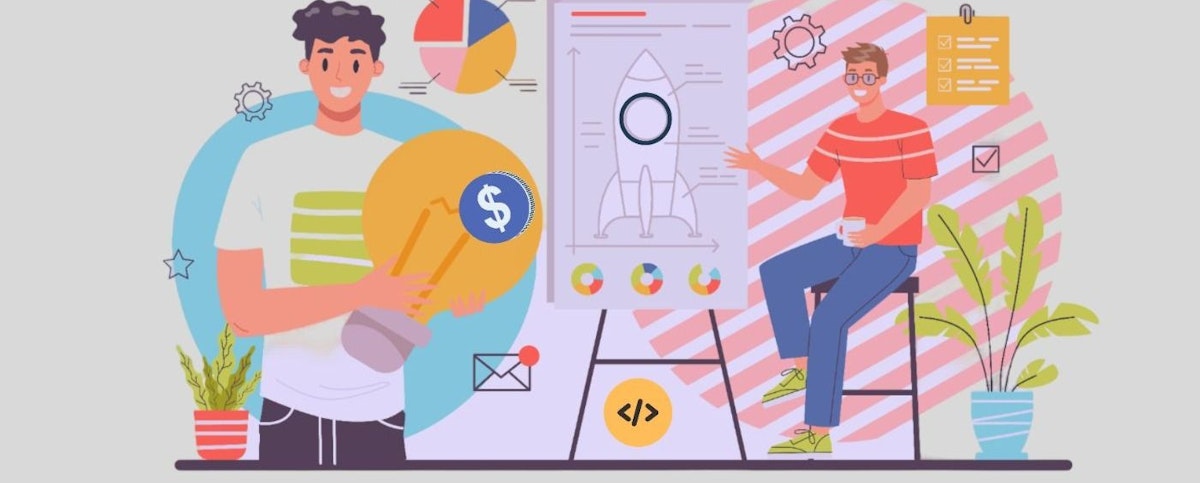
A LEDGER without middlemen
Too Long; Didn't Read
Obyte has adopted the OIP framework (previously BBIPs) to facilitate the evolution of its ecosystem. OIPs provide a structured workflow for proposing, discussing, and implementing improvements to the Obyte protocol. Anyone (expert or not) can present their own Improvement Proposals this way.
@obyte
ObyteA ledger without middlemen
Receive Stories from @obyte
Credibility



Sometimes, we may forget something very important about cryptocurrencies: besides being money, utilities, securities, art (or whatever, really), all of them are software. A complex computer program living in the bowels of the digital world and the Internet. Now, in case you didn’t know, there’s always someone behind computer programs, and not only for their creation. They need constant maintenance to function, and to keep the constant pace of updates everywhere.
As software, cryptocurrencies can also be greatly improved. If they’re decentralized (not controlled by a single party) and open-source (with its code publicly available), they can even be improved and maintained by anyone interested. Indeed, most cryptocurrencies welcome new volunteers or paid programmers worldwide to join their development.
They can help to maintain existing repositories (an archive of code) or propose potential enhancements. That’s the raison d'etre of improvement proposals in crypto.
What are Improvement Proposals?
Essentially, improvement proposals in crypto development are detailed documents to describe a new potential enhancement for the involved system. This formal document has a “champion” (the developer who came up with the idea), who shares and discusses their proposals with the maintainers and the community. The first improvement proposals were, of course, the Bitcoin Improvement Proposals (BIPs).
BIPs were
“… a design document providing information to the Bitcoin community, or describing a new feature for Bitcoin or its processes or environment. The BIP should provide a concise technical specification of the feature and a rationale for the feature. We intend BIPs to be the primary mechanisms for proposing new features, for collecting community input on an issue, and for documenting the design decisions that have gone into Bitcoin.”
Starting from that point, most altcoins have been using the same or a very similar system for their development. The concept is usually paired with their own ledgers —e.g. Ethereum Improvement Proposals (EIPs) or Obyte Improvement Proposals (OIPs). Likewise, the process to write, send, discuss, and accept new improvement proposals vary from team to team.
In decentralized and open-source ledgers, developers only need to join code repositories like GitHub, SourceForge, or GitLab to start participating in a coin or project. They can do so to the best of their abilities, even if they’re not experts, since there are mostly more experienced developers leading every update and discussion. Anyone (expert or not) can present their own Improvement Proposals this way, and discuss them with the community.
Obyte Improvement Proposals (OIPs)
Obyte has adopted the OIP framework (previously BBIPs) to facilitate the evolution of its ecosystem. OIPs provide a structured workflow for proposing, discussing, and implementing improvements to the Obyte protocol. Community members are encouraged to actively participate in the OIP process, ensuring a decentralized and community-driven approach to decision-making.
The Obyte community hosts its OIPs on GitHub, a widely used platform for collaboration and version control.
Proposal Submission:Community members draft and submit OIPs on the Obyte GitHub repository, according to the required style. The proposal should include a comprehensive description of the proposed change, its rationale, and potential benefits to the Obyte ecosystem.
Community Review and Discussion: Once submitted, the OIP undergoes a thorough review by the dev community. Community members are encouraged to provide feedback, raise concerns, and engage in constructive discussions regarding the proposal's feasibility, potential impact, and implementation details.
***Iteration and Refinement:***Based on community feedback, the proposer iterates and refines the OIP, taking into account valuable insights and suggestions. This iterative process helps improve the proposal's quality and increases the likelihood of community acceptance.
***Community Consensus:***OIPs require consensus from the community before they can be implemented. Consensus may be achieved through various mechanisms, such as signaling through community forums, voting, or rough consensus among influential community members.
Implementation and Deployment: Once an OIP gains community consensus, developers within the Obyte ecosystem work on implementing the proposed changes to the protocol. This phase involves coding, testing, and ensuring compatibility with existing infrastructure.
With the successful implementation of an OIP, the proposed improvement becomes an integral part of the Obyte ecosystem. These enhancements may range from new features, improved functionality, or optimizations that enhance the user experience and expand the possibilities within the Obyte ledger. If you’re ready to take part in it, we’re waiting for you
End of the byte! Check additional resources here:
Featured Vector Image by vector4stock /
Write a #Unity Story, Win from $3k











